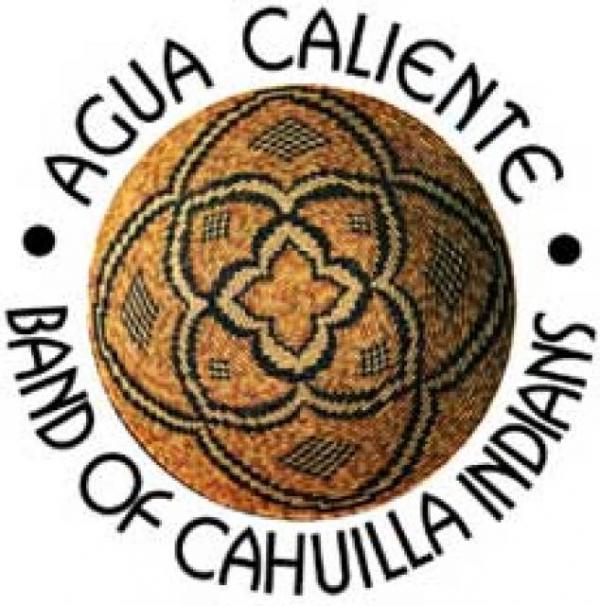Agua Caliente Scores Victory in Water Rights Issue

On Friday, March 20, a federal judge ruled that the U.S. government impliedly reserved groundwater, as well as surface water, for the Agua Caliente Band of Cahuilla Indians when it created the tribe’s southern California reservation. The court cited the 1908 Winters Doctrine, a judicial guarantee that provides water for the needs of Native Americans who reside on federally reserved lands.
RELATED: US Files Complaint on Behalf of Agua Caliente Over Water Rights
How much groundwater the United States reserved for the Agua Caliente band will be addressed later in the case, possibly through a trial. Yet the legal issue of whether the tribe has a federally reserved right to groundwater has been resolved in its favor.
The tribe’s legal journey began in May 2013, when it filed for declaratory and injunctive relief against the Coachella Valley Water District, the valley’s largest water agency, and the Desert Water Agency, the water utility for the Palm Springs area. In June 2014, the U.S. District Court of the Central District of California granted the United States’ motion to intervene as plaintiff in its capacity as trustee for the tribe’s 32,000-acre reservation, which spreads across Palm Springs, Cathedral City, Rancho Mirage, and into the Santa Rosa and San Jacinto mountains.
The U.S. government asked the court to declare that the United States holds, on behalf of the Agua Caliente band, federally reserved rights to groundwater in sufficient quantities “to foster, promote and fulfill the purposes for which the reservation was set aside.” It also sought to stop the water districts from overdrafting the groundwater in the Coachella Valley because it injures and infringes upon the “senior reserved rights of the tribe.”
After considering the papers, exhibits and parties’ arguments at a March 16 hearing, the court concluded that the tribe’s federally reserved water rights may include groundwater, although its aboriginal right of occupancy has been extinguished. Accordingly, the tribe and the United States are “entitled to partial summary judgment on the Phase I issue of whether the tribe’s federally reserved water rights encompass groundwater underlying the reservation.” Phase II and III will involve ownership of “pore space” beneath the reservation; whether a right to quantity encompasses a right to quality; and, if necessary, quantifying the tribe’s rights to groundwater and pore space and crafting appropriate injunctive relief.
In his ruling, U.S. District Judge Jesus G. Bernal wrote, “The federal government intended to reserve water for the tribe’s use on its reservation. Rights to the groundwater underlying the reservation are appurtenant to the reservation itself.”
This is consistent with settled federal law, according to court documents. It also affirms what the Agua Caliente band has sought for more than 20 years – recognition of its legitimate ownership interest in the Coachella Valley’s groundwater, and its interest in responsible management of the aquifer’s condition. And, it’s a significant step in determining how water will be managed in California’s Coachella Valley going forward.
“This decision validates the tribe’s diligent work to protect and preserve one of the valley’s most important natural resources,” Tribal Chairman Jeff L. Grubbe said.
Water is indeed a precious resource in drought-stricken southern California, and for years, the rate of the water drawn from the Coachella Valley aquifer has depleted natural levels. This is known as overdrafting, and the natural replenishment cycle has not been able to return enough water to match historic water levels. To reduce the overdraft, CVWD and DWA began importing untreated water from the Colorado River, putting it directly into the aquifer. According to the tribe, this has significantly lowered the water quality.
“These practices are not acceptable for long-term health and viability of the Coachella Valley water supply," Grubbe said. “We called out this detrimental practice and brought it to the attention of the water districts over and over for years, simply to be ignored.”
In court documents, CVWD argued that Congress extinguished any aboriginal groundwater rights, and that Winters Doctrine rights don’t extend to groundwater. Even if they did, CVWA maintained that the reservation would not “entirely fail” without the reserved right to groundwater. DWA’s argument ran along similar lines, contending that the tribe has no federal reserved right in groundwater, and its aboriginal water rights claim was extinguished by statute long ago.
While the court agreed on the subject of aboriginal water rights, noting that the Agua Caliente band has no derivative right to groundwater on that basis, it confirmed the tribe’s federally reserved rights to groundwater. CVWD President John Powell Jr. said he’s disappointed CVWD didn’t win on both issues.
“We will continue to argue that the water beneath the Coachella Valley belongs to everyone, including the Agua Caliente Band of Cahuilla Indians, not just special interests such as the tribe,” he said.
Read more at http://indiancountrytodaymedianetwork.com/2015/04/01/agua-caliente-scores-victory-water-rights-issue-159827